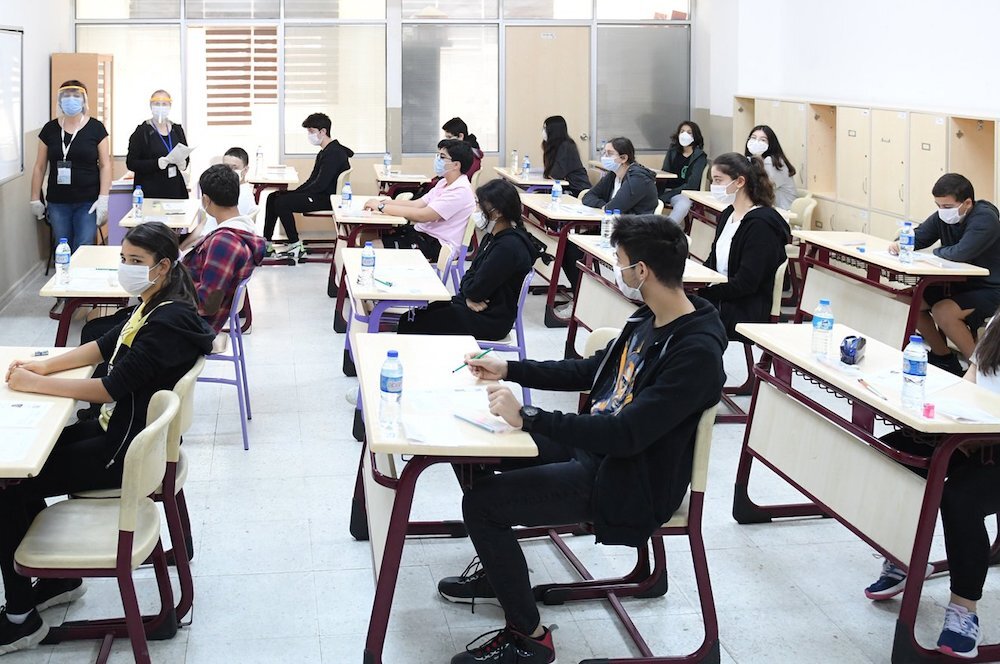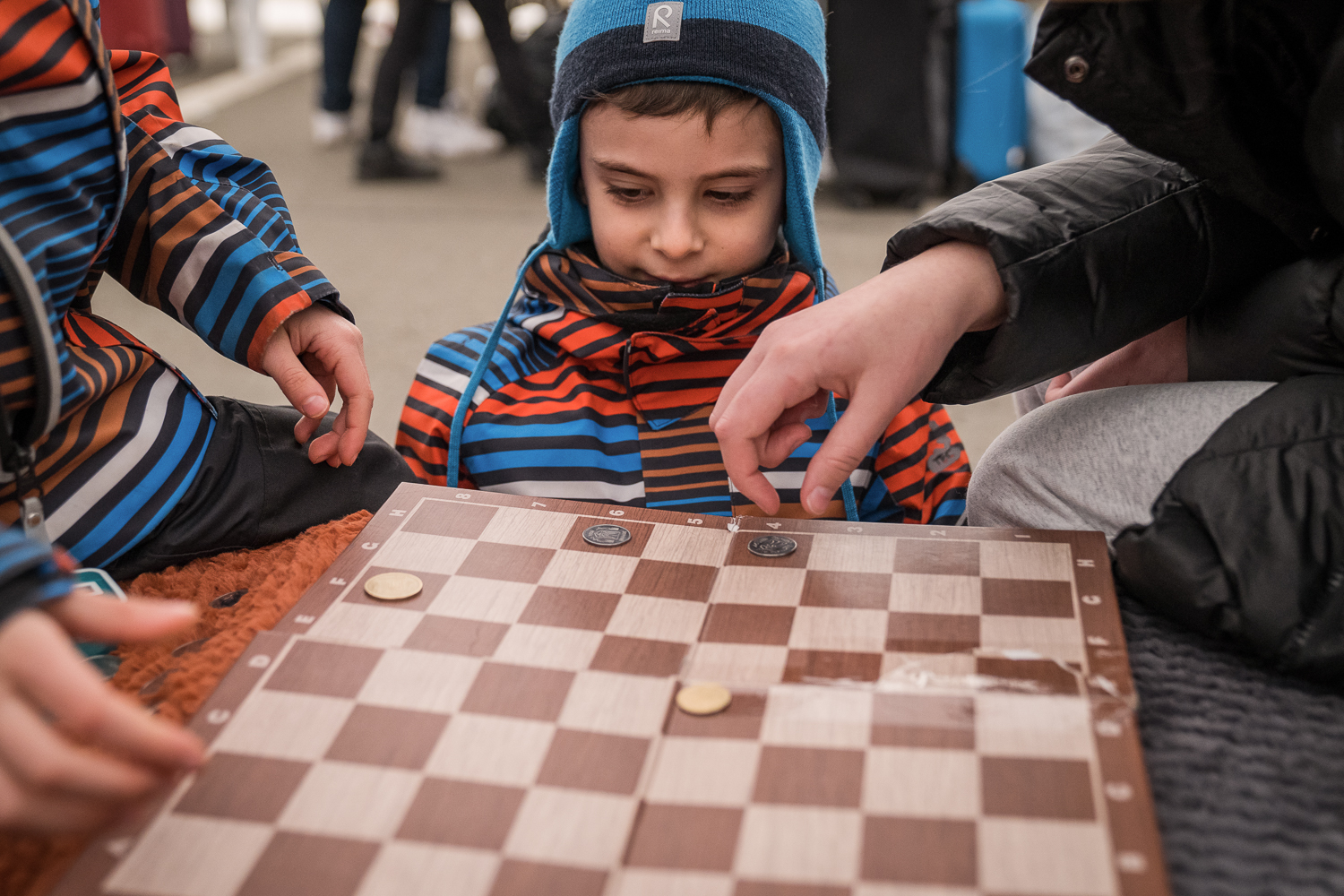
Five things you need to know this week about global education

Child trafficking, Education in emergencies
We look at tentative plans to reopen schools for 25 million students in Turkey - and two major funding boosts for girls’ education in African countries.
Turkey getting ready to reopen schools
Turkey is planning to reopen schools for 25 million students on August 31 – but only if the number of coronavirus cases remains stable.
Teachers and administrators are preparing on-site health precautions. A government source told Reuters news agency that “if the number of cases decreases, all schools will be opened” but that otherwise schools in high-infection areas might remain closed.
Schools shifted to distance education in March, when Turkey identified its first case and began restricting movement. Much of the economy reopened on June 1, after the school year ended.
“We have been told that the schools will reopen, so we will see how it goes,” said a first-grade teacher in the southern city of Antalya. “I do feel a bit concerned about my students’ and my family’s health, of course.”
About half of Turkey’s nearly 230,000 cases and more than 5,600 deaths are in its biggest city, Istanbul, the government says. The capital Ankara and Diyarbakir in the mainly Kurdish southeast have also been hotspots.
Turkey is home to more than a million school-age Syrian refugees – but 37% of them are still not getting a formal education.
Also this week, Ireland announced a 375 million euro financial package aimed at getting children back to school full-time by the end of August. Hundreds of additional teachers and support staff will be recruited and money will be spent on building works and classroom alterations to enable social distancing.
The Scottish government announced yesterday that students will return to schools full-time from August 11.
Nigeria will allow schools to reopen for secondary school students due to take graduation exams, a presidential aide said on Monday. That revived a plan dropped earlier this month due to rising cases of Covid-19.
Funding to help 247,000 children in crisis countries
Breaking! #ECW First Emergency Response education investments total $60.1 million in just 4 months; incl. $13M just announced for #Mali #Niger #BurkinaFaso!
Read more: https://cutt.ly/rsZjnWQ
Posted by Education Cannot Wait on Wednesday, 29 July 2020
Education Cannot Wait has announced $13 million in new funding to scale up the education in emergency response in the Sahel countries of Burkina Faso, Mali and Niger. It will help 247,000 crisis-affected children and youth – 55% of them girls – to access quality education.
The funding will improve access to learning in protective environments and reduce school dropouts by responding to existing crises and the effect of Covid-19.
The investments will reach children and youth across age-groups and education levels – 13% in pre-primary, 66% in primary and 21% in secondary education.
“With this new funding, ECW’s total First Emergency Response investments in just the past four months alone now span 33 countries and crisis-affected contexts, with a record amount of $60.1 million allocated for vulnerable children and youth in crisis-affected countries,” said Director Yasmine Sherif.
One in four trafficking victims are children
Children make up a quarter of all victims of trafficking or exploitation – with the pandemic isolating victims further and making it even harder to reach them, says a new report by Save the Children.
Of 108,000 cases of trafficking reported in 164 countries last year, more than 23% involved minors and one in 20 cases involved children under eight.
This means they are often deprived of their right to education – 10% of victims have never been to school and about a quarter have not gone beyond middle school, according to the report Little Invisible Slaves. It was released to mark World Day Against Trafficking in Persons yesterday.
The latest numbers are in line with earlier studies, which estimated that of more than 40 million victims of trafficking or exploitation in the world, 10 million are younger than 18.
Nigerian girls to benefit from education funding
Nigeria: World Bank approves USD 500 million credit for girl empowerment https://t.co/WfvYuxn7ZT
— Devdiscourse (@dev_discourse) July 30, 2020
An initiative to improve secondary education opportunities for girls in parts of Nigeria has been boosted by a $500 million credit from the World Bank’s International Development Association.
The project will use secondary school as a platform to empower girls in seven states through education, life skills, health education, gender-based violence awareness and prevention, negotiations skills, self-agency and digital literacy skills. A minimum of six million girls and boys are expected to benefit and many more cohorts of students will continue benefiting after the project ends.
In northern Nigeria, the lack of secondary schools is significant – with up to 10 primary schools for every secondary school. Poor condition of infrastructure and a lack of water sanitation and hygiene facilities makes it difficult for girls to stay in school.
If nothing is done, 1.3 million girls of the 1.85 million who began primary school in 2017-2018 in the northern states will drop out before reaching the last year of junior secondary school.
Pandemic could lead to more wasting
An additional 6.7 million children under the age of five could suffer from wasting and become dangerously undernourished in 2020 as a result of the socio-economic impact of the pandemic, UNICEF has warned.
According to an analysis published in The Lancet, 80% of these children would be from sub-Saharan Africa and South Asia. Over half would be from South Asia alone.
Wasting is a life-threatening form of malnutrition, which makes children too thin and weak, and puts them at greater risk of dying, poor growth, development and learning. According to UNICEF, even before the pandemic, 47 million children were already wasted in 2019.
90% of children’s brain development happens before age five. All of the best scientific evidence shows attending good quality nurseries, preschools and playgroups boosts children’s development and puts them on a better path for learning. But it remains one of the most underfunded parts of education and Theirworld has been campaigning for 10% of education funding to go towards pre-primary.
More news

